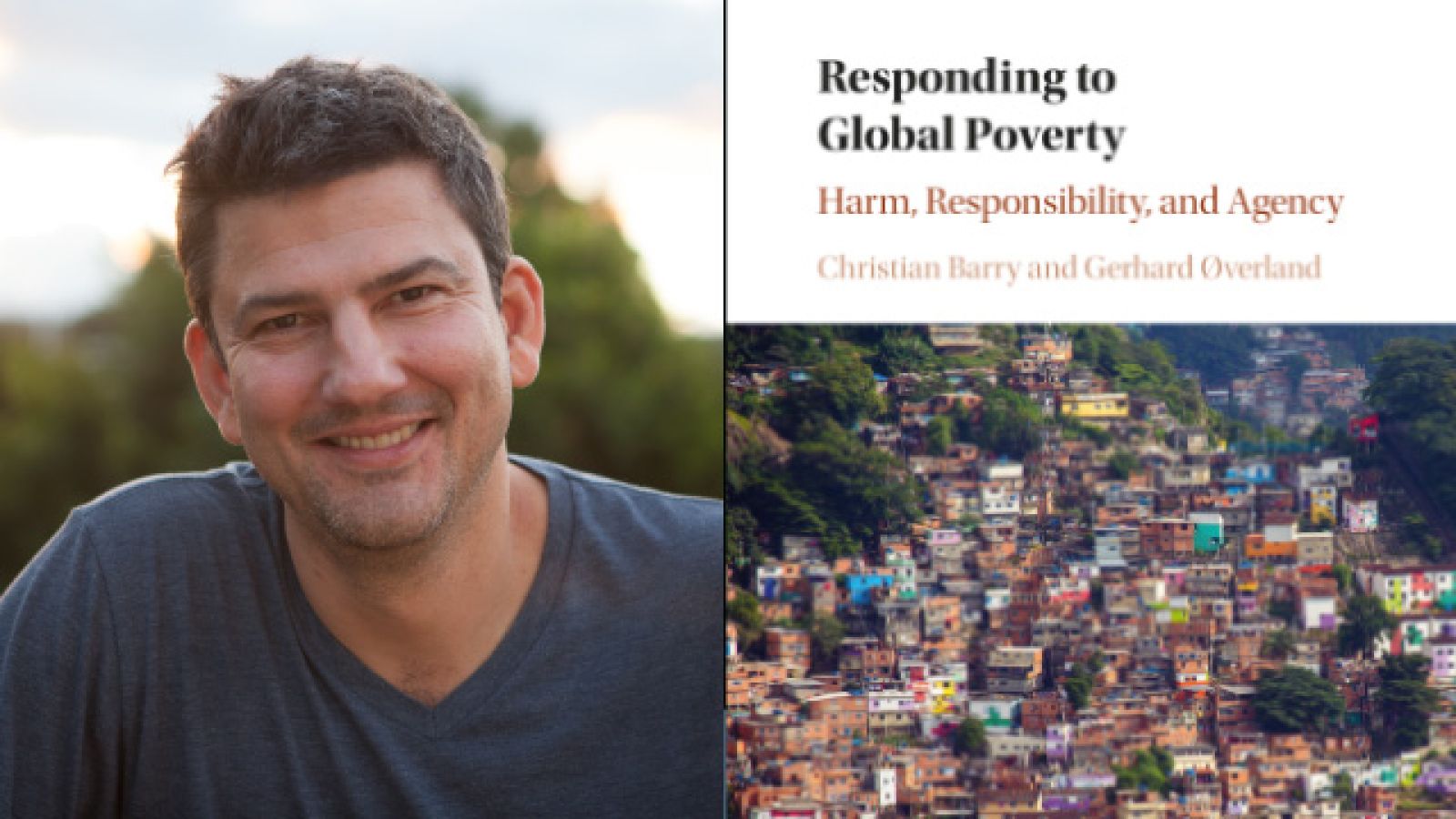Using philosophy to help solve problems of global poverty

Professor Christian Barry of ANU, co-author of Responding to global poverty (CUP, 2016)
It is no surprise that alleviating global poverty – one of the world’s most pressing problems - presents many moral complexities for policy makers trying to address it.
Responding to Global Poverty: harm, responsibility and agency, a new book by ANU philosopher Professor Christian Barry and the late Professor Gerhard Øverland (University of Oslo), explores two arguments that assert that affluent people have responsibilities to address poverty abroad.
The first argument grounds such responsibilities in the ability to avert serious suffering by taking on some cost. The second argument grounds such responsibilities on claims that the affluent are contributing to poverty abroad.
“I think that people underestimate the extent to which some of the abstract philosophical issues we talk about in the book come up in policy discussion,” Professor Barry, Head of the ANU School of Philosophy, says.
“You’ll often hear someone say ‘this is an unacceptable policy because it’s going to be hurting people in poor countries.”
“There are all sorts of claims that happen in arguments about specific policies that invoke concepts like harm and unfairness, and a lot of the book is about trying to understand a bit better what those claims might mean, and how reasonable they are when directed at certain types of policies.”
The book stresses the importance of the category of enabling harm, which Barry and Øverland argue is different from doing harm and merely failing to prevent harm.
“In cases where you’re actively enabling harm by providing someone with the means to do harm is particularly problematic,” Professor Barry says.
“For example, if you’re selling weapons or providing resources to a regime which is doing a great deal of harm, that seems to be a particularly egregious form of enabling harm.
“There are other ways in which you might enable harm, for example you might impose a trade tariff in order to help local industries, which might in turn reduce the export capacities of some other country, with impacts on poverty in that country.”
“Imposing tariffs may be a questionable policy, but it’s not obvious harming that country in the same way as if you were providing the means to harm them directly.
“We argue this makes a difference in how we should think morally about these kinds of policies.”
“Some of the book deals with more empirical questions – is it true that it’s very cheap to do a lot of good, and is it true that various policies really do have the effect some say they do, or is the evidence less clear,” Professor Barry says.
“However, most of the book is about general moral questions given an assumption on what some of the facts are, what implications do these have for individuals in relatively affluent countries.
“It is very much a book of analytic philosophy, so we’ve tried to make the discussion accessible and written in a way that could be used for teaching purposes.”
Responding to Global Poverty will be launched in November 2016 and is available from Cambridge University Press from December.